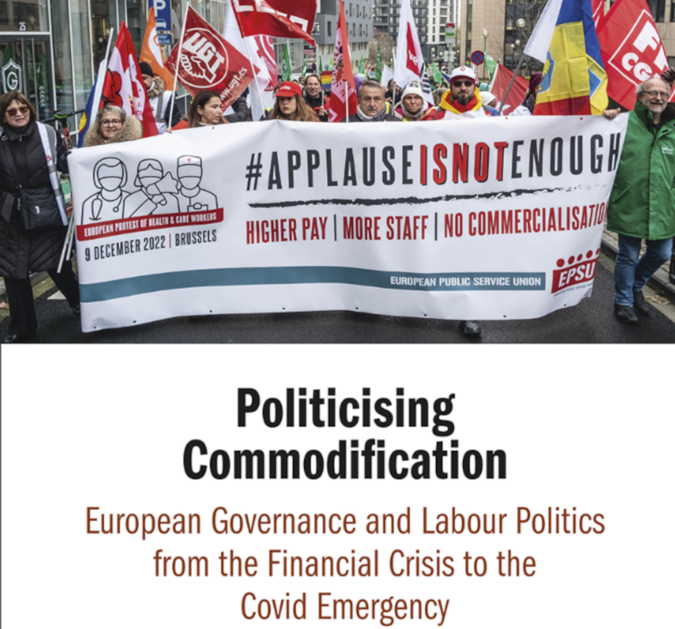Politicising commodification

As part of the 54th UACES Annual Conference, a dedicated “authors meet critics” panel will discuss the book Politicising Commodification: European Integration and Labour Politics from the Financial Crisis to the COVID Emergency, published by Cambridge University Press
As part of the 54th UACES Annual Conference, a dedicated “authors meet critics” panel will discuss the book Politicising Commodification: European Integration and Labour Politics from the Financial Crisis to the COVID Emergency , published by Cambridge University Press.
This book examines the new economic governance (NEG) regime that the EU adopted after 2008. Its novel research design captures the supranational formulation of NEG prescriptions and their uneven deployment across countries (Germany, Italy, Ireland, Romania), policy areas (employment relations, public services), and sectors (transport, water, healthcare). NEG led to a much more vertical mode of EU integration, and its commodification agenda unleashed a plethora of union and social-movement protests, including transnationally. The book presents findings that are crucial for the prospects of European democracy, as labour politics is essential in framing the struggles about the direction of NEG along a commodification–decommodification axis rather than a national–EU axis. To shed light on corresponding processes at EU level, it upscales insights on the historical role that labour movements have played in the development of democracy and welfare states.
In the book, we are proposing three conceptual innovations for study of EU integration through law, extra-legal economic governage tools,and social conflict. First, we shift from the classical distinction of negative and positive integration (Scharpf, 1999) to one that distinguishes horizontal and vertical integration modes (Erne, 2018). Second, we propose to go beyond the classical, state-centred (intergovernmental or supranational) paradigms of EU law and political science, as we have found that the EU’s NEG regime mimics the corporate governance regime that TNCs use to steer the activities of their subsidiaries and their workforce (Erne, 2015). Finally, we pursue an analytical approach that complements existing EU politicisation studies, which assess the salience of Eurosceptic views in media debates, opinion polls, elections, and referenda, as we must study EU politicisation also at the meso level of interest politics (Zürn, 2016; Erne, 2023a). After all, the political cleavages that structure national politics have neither been created in individuals’ minds at the micro level nor were they simply an outcome of systemic macro-level changes (Bartolini, 2000).
Chair(s): Roland Erne, University College of Dublin (co-author)
Presenter(s):
Luisa Chiodi, OBC Transeuropa/CCI , Trento
Louisa Rosemary Parks, University of Trento
Dagmar Schiek, University College Dublin
Stijn Smismans, Cardiff University (online)
Download the book for free here .
INFO:

